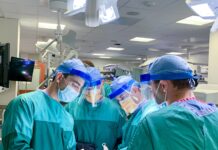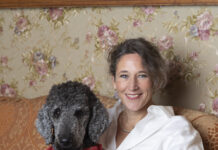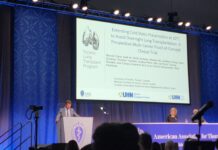Dr. Alta DeRoo did not go to medical college until the age of 29. After obtaining her degree in psychology from Connecticut College, she joined the US Navy where she served as a Naval Flight Officer. As an aviation soldier, she led forty missions on combat control aircraft popularly known as the Hawkeye, serving as the first woman assigned to her combat squadron.
When Dr. DeRoo was in her undergraduate program, she recalls how everybody tiptoed around the dormitory, as a young man in her dormitory studied for the MCAT. Dr. DeRoo believed doctors were extraordinary individuals who had answers to every question–that they were extra smart and worked hard.
In college, I chose the easiest majors because I wanted to play sports. I did not take hard classes. I loved the idea of doing medicine but I believed I was not smart enough.
Dr. Alta DeRoo
Her beliefs changed when she joined the US Navy and personally interacted with some doctors. She noticed that some of them were not as smart as she thought they would be.
I realized that you don’t have to be super-smart to be a doctor. You just have to be willing to work hard, learn medicine, and help other people with your skills. After I learned that, it motivated me to apply for medical school.
Dr. Alta DeRoo
The US Navy offered her a scholarship to attend the University of Florida College of Medicine. After graduation, she specialized in OB-GYN and completed a fellowship in reproductive endocrinology and infertility with the National Institutes of Health (NIH).
The Dilemma of Non-traditional Medical Student
Medical school was tough for Dr. DeRoo. She likes to call herself a non-traditional medical student because the parents of everyone around her were doctors or nurses, yet no one in her family history went to medical school. Her parents didn’t even graduate.
On my first day in medical school, I didn’t know what CBC was. I was embarrassed because everybody around me knew that because their parents were doctors or nurses. I thought ‘what am I doing here?’ The nonstop struggle for four years, waking up early, and staying up late, I would tell myself, ‘I can do this and I will be the first doctor in my family and I will go out and help people’. When I graduated, I sighed, ‘Ah, thank God!’”
Dr. Alta DeRoo
First Love: Obstetrics & Gynaecology
OB-GYN is Dr. Alta DeRoo’s first love. She chose OB-GYN because she finds a special purpose in treating other women.
Back in the early 90s, women did not get the necessary attention for medical care. Most of the physicians back then were men. Sometimes there is special compassion and knowledge that comes with being a female physician to treat other women. My passion stemmed from the fact that I wanted to be able to deliver the care that women deserve. Another part of my passion is delivering a baby. When I deliver a baby, I see both mom and dad crying. It reignites my passion. I love it! I love the excitement.
Dr. Alta DeRoo
Expansion of Specialty
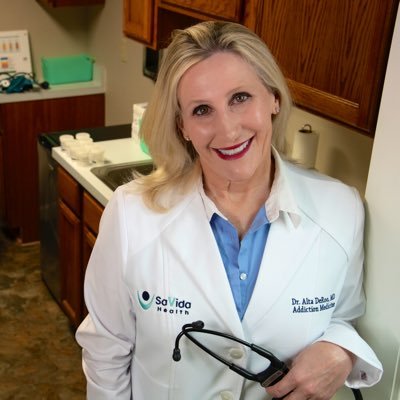
Dr. Alta DeRoo advocates expanding learning capabilities so a specialist in any medical area can choose to obtain another diploma, training or certification. Doctors who choose one path of medicine miss opportunities to branch out. Firm command in more than one speciality grants more power and improves earning potential.
OB-GYN was always my passion. I practised this speciality for 20+ years. Then, I started to see more and more addiction; addiction infiltrated my OB-GYN patients. Specialization for substance addiction was an additional board certification that does not require residency. I could study on my own and the population is everywhere.
Dr. Alta DeRoo
COVID-19 Pandemic & Substance Use Disorder (SUD)
The COVID-19 pandemic demanded isolation. People were bound to their houses, providing ample opportunities to consume substances without outside interference. Even prior to the pandemic, the substance use crisis was greater than ever, and the isolation was like gasoline on a fire. Rates of addiction grew and the death toll due to substance addiction rose alarmingly.
During the pandemic, we saw a 30% rise in overdose deaths. Normally, when someone works at the workplace, they work next to someone. They can see you, smell you and see you walking. The fear of being observed is lost when people are isolated. Alcohol and opioids became big issues.
Dr. Alta DeRoo
Translation of Military Training at Hospital

Switching from the military to healthcare was a change, but military training still helps her at the hospital. The high-stress environment at the US Navy is similar to emergency cases at hospitals.
We had to prepare our flight plan and know the system in our airplane inside and out in case of an emergency. This is the same with patients, especially when you are in surgery. Knowing the anatomy of your plane is knowing the anatomy of your patient. Also, when you have an emergency in aviation you can’t freak out, lose composure, stop thinking or act emotionally for the sake of your and others’ life. The same is in medicine. When managing a patient with complications, you can’t fall apart because life is at stake. The military taught me emotional intelligence and preparation for stressful cases. People around you feel more confident under your leadership when you react with composure. Reacting to stress and emergencies is the biggest thing I learned from the military that I translate into medicine.
Dr. Alta DeRoo
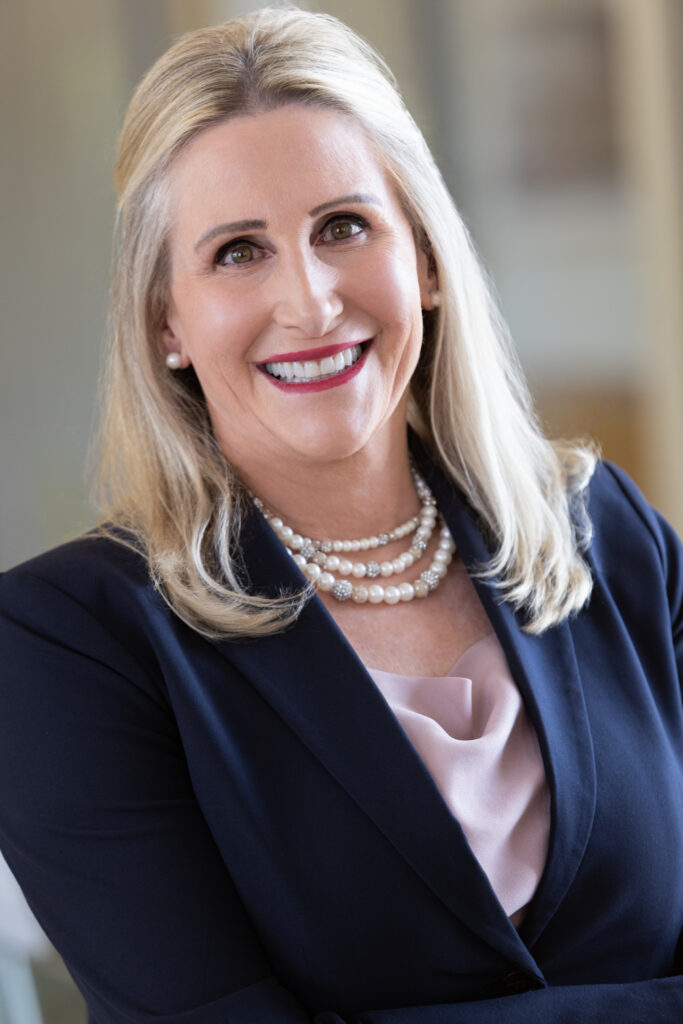
Blood, Sweat & Tears: Hard time pays off
Even after years of graduating from medical school, Dr. DeRoo understands the mind of a medical student. She understands the hard work, struggle, exhaustion and sacrifices. Here is an exclusive note of motivation from Dr. Alta DeRoo.
Medical school is hard, but it is worth it. You don’t have to be very smart. I am not very smart but I am a hard worker. If you put in blood, sweat and tears, you wake up in the morning and you study till the evening, the sacrifices are going to pay off. I really want to encourage the non-traditional people who went into medicine–with no family of doctors, maybe you are the first doctor in the family–it is going to pay off. When you are sitting in your pathology class and thinking ‘Am I ever going to see hypertrophic cardiomyopathy’? Yes, you will! The education you are getting is sinking in, you just may not know it. You will be so impressed with yourself when you finish these years of medical school.
Dr. Alta DeRoo
Dr. Alta DeRoo’s Art of Medicine: Compassion & Empathy
Dr. Alta DeRoo educates young doctors to practice compassion and empathy with their patients.
The patient is not going to remember how you magically came up with the diagnosis of the disease. They are going to remember how you made them feel. They are going to remember the compassion and empathy you gave them. There is a science of medicine but the art of medicine is in empathy and compassion.
Dr. Alta DeRoo
The non-traditional medical student, Dr. Alta DeRoo, is a classically trained OB-GYN and board-certified Physician of Substance Abuse. She didn’t believe in it when she was younger, yet here she is excelling at being Chief Medical Officer (CMO) of Hazelden Betty Ford Foundation, USA.


